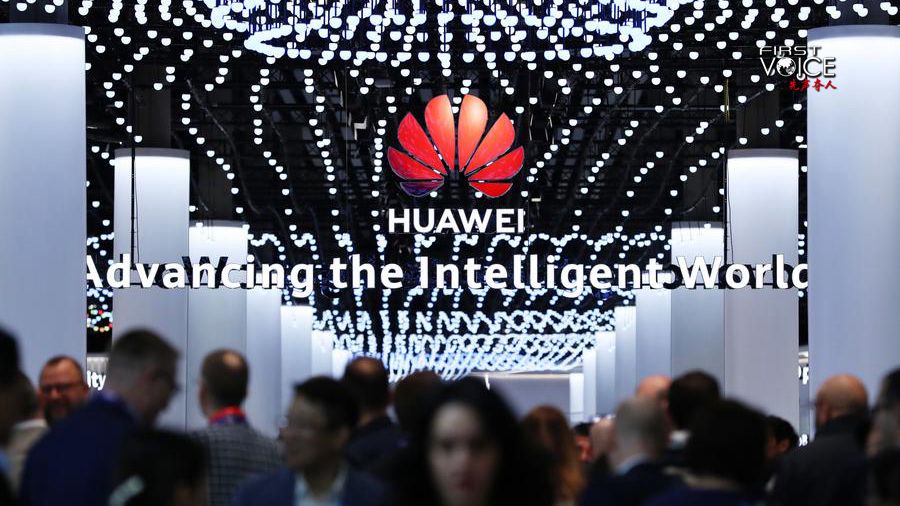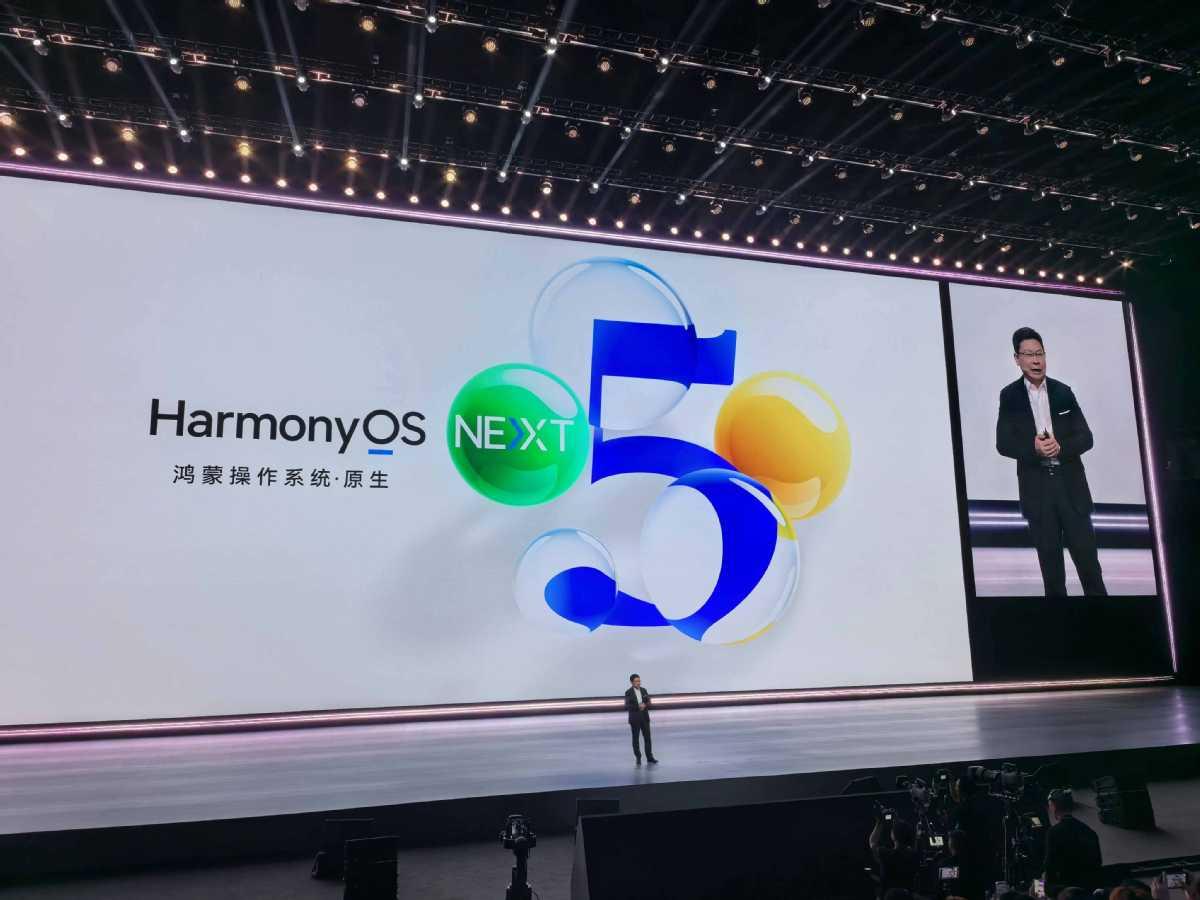
People visit the Huawei booth during the Mobile World Congress (MWC) 2024 in Barcelona, Spain, February 26, 2024. [Photo/Xinhua]
Editor's note: CGTN's First Voice provides instant commentary on breaking stories. The column clarifies emerging issues and better defines the news agenda, offering a Chinese perspective on the latest global events.
"Huawei's struggles reflect how years of U.S. sanctions have scored initial success at freezing Chinese technology advancement at current levels, and deprived its national champions of the chance to graduate to the next level," Bloomberg said in an article in November.
True, Huawei – as a result of Washington's technological blockades and economic coercion – has been "struggling" in recent years. But its struggles reflect how U.S. efforts to kick China out of the global supply chain have failed.
Despite the U.S.'s unjustified curbs, Huawei is set to launch the Mate70 smartphone series on Tuesday to flex its chip self-sufficiency. The company has also built a fully homegrown operating system HarmonyOS Next – a third major mobile system alongside Apple's iOS and Google's Android.
"It is the latest demonstration that U.S. sanctions designed to enfeeble the company have instead cemented Huawei's status as a technological juggernaut," the Financial Times said in an article. So far, the original HarmonyOS has run on one billion devices. Huawei last month also reported a sales surge of 30 percent from a year earlier in the first nine months of this year.

Huawei's executive director Yu Chengdong at the launch of the company's new mobile operating system in Shenzhen, Guangdong Province, October 22, 2024. [Photo/Xinhua]
Huawei's growth is just an epitome of China's technological strides.
In face of Western suppression, China is dedicated to deploying equipment from domestic suppliers and building a domestic ecosystem. In 2023, China's research and development expenditure surpassed 3.3 trillion yuan ($458.5 billion), an 8.1 percent year-on-year increase, according to the Ministry of Science and Technology.
The latest 2023 Nature Index shows that China, for the first time, ranked top in the share of papers published in high-quality journals, overtaking the United States.
And the efforts are bearing fruit.
In contrast to Bloomberg's hyperbole about China's "moratorium" on extreme ultraviolet lithography, Chinese lithography systems maker Shanghai Micro Electronics Equipment filed the "extreme ultraviolet (EUV) radiation generators and lithography equipment" patent in March last year. This is seen as the Achilles' heel of China's semiconductor industry which could help the country break a monopoly held by ASML.
The U.S. has been attempting to play the sanction card to kick its rivals from the global supply chain. But this has only spurred China to redouble efforts in finding alternatives to American technology. Against Washington's selfish calculations, technological blockades are accelerating China's innovation.
Admittedly, there is still a gap between China's technological capabilities and those of the world's advanced economies. But China is catching up. It is just a matter of time before China builds a world-class supply chain and realizes self-sufficiency in emerging technologies.
While the U.S. – in an attempt to win in competition – resorted to sanctions, China's solution is cooperation and inclusiveness. As the U.S. has been straining every nerve to curb the growth of its rivals, Huawei founder and CEO Ren Zhengfei said last month that he appreciates the "openness and inclusivity" of American tech community, adding that Huawei needs to learn from the receptive culture of the United States.
"The U.S. has set an example for all countries and companies worldwide on being open… If (a country) is closed off, it will fall behind," Ren said at October's event.
True, openness is a prerequisite to cooperation and common growth. America's receptive culture allowed the country to become highly advanced in science and technology. But is Washington still harboring openness in face of competition from other countries?
China attaches great importance to innovation and openness. This explains its technological strides in the past few years. If the U.S. wants growth, reviving its receptive culture might be one of the keys.

 中文
中文



